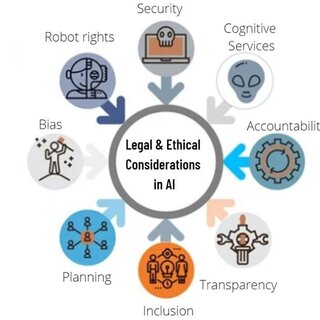Introduction:
In the ever-evolving landscape of healthcare, the integration of Artificial Intelligence (AI) has emerged as a transformative force, reshaping the industry’s core paradigms. AI’s ability to analyze vast amounts of data, recognize intricate patterns, and make data-driven predictions has not only revolutionized patient care but has also ushered in a new era of efficiency and innovation. This blog will delve into the multifaceted impact of AI on various aspects of healthcare, from diagnostics and personalized treatment plans to administrative processes and patient engagement. Furthermore, we will explore the pivotal role of strategic healthcare consultancy in navigating the complex healthcare ecosystem, using real-world examples to illustrate the transformative potential of the synergy between AI and strategic expertise.

AI in Diagnostics:
One of the most promising applications of AI in healthcare is its role in diagnostics. Machine learning algorithms can analyze medical imaging, such as X-rays, MRIs, and CT scans, with a level of accuracy that rivals or even surpasses human experts. For example, Google’s DeepMind has developed an AI system that detects eye diseases from scans, demonstrating the potential of AI to identify conditions early on and significantly improve diagnostic timelines.
Moreover, AI-powered diagnostic tools extend beyond traditional imaging. Natural Language Processing (NLP) algorithms can analyze vast amounts of unstructured medical data, such as electronic health records and clinical notes, helping to uncover insights that might be overlooked through traditional methods. IBM’s Watson Health, for instance, uses NLP to process and understand clinical data, aiding healthcare professionals in making more accurate and timely diagnoses.

Personalized Treatment Plans:
AI’s capacity to process and analyze large datasets has paved the way for the development of personalized treatment plans tailored to individual patient needs. For instance, IBM’s Watson for Oncology utilizes AI to analyze medical literature, clinical trial data, and patient records to recommend personalized treatment options for cancer patients. This not only streamlines the decision-making process for healthcare providers but also aligns with the paradigm shift towards precision medicine.
In the field of mental health, AI-driven applications, such as Woebot, offer personalized therapeutic interventions based on users’ responses. Woebot utilizes natural language understanding and cognitive-behavioral therapy principles to provide accessible and personalized mental health support.
Administrative Efficiency:
Beyond patient care, AI is streamlining administrative processes within healthcare institutions. Natural Language Processing (NLP) and machine learning algorithms are being utilized for tasks like medical coding, billing, and administrative workflows. Olive, an AI-powered platform, automates repetitive tasks in healthcare administration, reducing costs and improving efficiency. This not only reduces the administrative burden on healthcare professionals but also minimizes errors and improves overall operational efficiency.
The integration of AI in administrative processes has also extended to customer service. Chatbots powered by AI assist patients with appointment scheduling, answering queries, and providing general information. This not only enhances the patient experience but also allows healthcare staff to focus on more complex tasks.

Predictive Analytics for Public Health:
AI’s predictive analytics capabilities are proving invaluable in identifying and managing public health trends. For example, BlueDot, a Canadian AI company, uses machine learning to analyze global data and predict disease outbreaks. During the COVID-19 pandemic, BlueDot successfully identified the outbreak before traditional methods, showcasing the potential of AI in early detection and response.
Moreover, predictive analytics can aid in resource allocation and management. Hospitals can use AI-driven models to predict patient admission rates, optimizing staffing levels and bed availability. This proactive approach ensures that healthcare institutions are well-prepared for fluctuations in patient volumes.

Enhanced Patient Engagement:
AI-powered applications are enhancing patient engagement and empowerment. Babylon Health’s AI chatbot, for instance, provides instant medical information and assists with symptom checking. Wearable devices connected to AI systems, like those developed by Apple and Fitbit, enable continuous monitoring of health metrics, allowing for early detection of abnormalities and timely interventions.
In addition to virtual health assistants, AI-driven applications are empowering patients to actively manage their health. Apps like Ada and Your.MD use AI algorithms to provide personalized health assessments based on user inputs, fostering a sense of ownership over one’s well-being.
Challenges and Ethical Considerations:
While the benefits of AI in healthcare are profound, it is essential to address the challenges and ethical considerations that come with its implementation. Issues such as data privacy, algorithmic bias, and the need for regulatory frameworks to ensure transparency and accountability must be carefully navigated to build trust in AI-driven healthcare solutions.
The ethical use of AI in healthcare is crucial to ensuring that patient data is handled responsibly and that algorithms are free from biases. Transparent communication about how AI is used in decision-making processes and ongoing efforts to address ethical concerns are essential for maintaining public trust.

Critical Future’s Role in Healthcare:
Critical Future has developed substantial expertise in healthcare, offering two main types of services:
Strategic Healthcare Consultancy:
Critical Future has supported over 50 healthcare companies with projects ranging from go-to-market strategy and business plans to financial models, reimbursement strategies, and competitor analysis. For example, the consultancy provided strategic guidance to a telemedicine startup, helping them navigate the competitive landscape and devise an effective market entry strategy.
The consultancy’s areas of expertise span diverse fields, including wounds, oncology, telemedicine, and more. Leveraging a network of doctors, distributors, nurses, professors, and experts in the US and Europe, Critical Future offers unparalleled insights through expert interviews. These engagements have not only facilitated successful market entries but have also ensured that healthcare solutions align with the unique challenges and opportunities of the industry.
AI Development in Healthcare:
Using deep learning, Critical Future predicts cancer from photographs of moles with near 100% accuracy. The consultancy also employs deep learning to predict the most effective cancer drugs for specific types of cancer. An illustrative example is the collaboration with a major pharmaceutical company, where Critical Future’s AI algorithms assisted in identifying promising drug candidates for clinical trials.
The collaboration with a telemedicine startup underscores Critical Future’s commitment to leveraging AI for disruptive innovation in healthcare. By combining strategic insights with cutting-edge AI applications, Critical Future has positioned itself as a catalyst for transformative change in the healthcare landscape.
The Synergy: AI and Strategic Consultancy:
The marriage of AI with strategic consultancy enhances the overall healthcare landscape. Critical Future’s combined approach benefits the industry through informed decision-making, precision in healthcare solutions, market entry with confidence, and innovative drug development.
Informed Decision-Making:
- Strategic consultancy provides the necessary groundwork for informed decision-making, while AI augments these decisions with data-driven insights. For instance, when recommending a market entry strategy, Critical Future’s consultancy services are enriched by AI-driven market analysis, ensuring that decisions are based on comprehensive and accurate information.
Precision in Healthcare Solutions:
- AI enables precision in diagnostics and treatment plans, aligning with the strategic consultancy’s focus on personalized healthcare. In the case of predicting cancer from photographs of moles, the precision achieved by AI enhances the accuracy of diagnoses, contributing to more effective and tailored treatment plans.
- Market Entry with Confidence:
- Critical Future’s expertise in market entry strategies, coupled with AI-driven insights, empowers healthcare companies to navigate new markets with confidence. The combination of strategic consultancy and AI analysis ensures a comprehensive understanding of market dynamics, regulatory landscapes, and competitor positioning.
- Innovative Drug Development:
- AI accelerates drug development by predicting efficacy, complementing strategic consultancy’s focus on business plans and financial models for sustainable solutions. Critical Future’s collaboration with a major pharmaceutical company showcases how AI can expedite the identification of promising drug candidates, streamlining the drug development process.
Conclusion:
Critical Future’s pioneering approach brings together strategic healthcare consultancy and AI development to drive unparalleled advancements in patient care, market dynamics, and industry innovation. As the healthcare sector continues to embrace these transformative technologies, Critical Future stands at the forefront, shaping a future where precision, innovation, and strategic vision converge for the betterment of global healthcare.
The synergy of AI and strategic expertise is not just reshaping healthcare; it’s defining its future. Through real-world examples and comprehensive insights, this blog has explored the profound impact of AI and strategic consultancy on various facets of healthcare. As we navigate the complexities of the healthcare landscape, the collaboration between AI and strategic expertise promises a future where healthcare is not only more efficient and precise but also more accessible and patient-centric.
